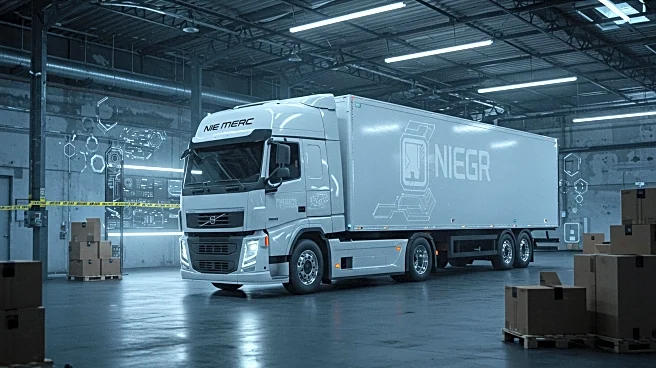What's Happening?
Descartes Systems Group has introduced Descartes Visual Compliance AI Assist, a cloud-based solution designed to enhance denied party screening for trade compliance teams. This tool uses AI to improve screening accuracy and streamline workflows, helping companies adhere to complex global trade regulations. Additionally, Fleetworthy has acquired its third patent for the Drivewyze weigh station bypass service, marking its 22nd patent overall. This patent covers features such as dual-mode logic for weigh station bypass and toll payments, alongside customizable privacy controls. Furthermore, the NMFTA's Digital LTL Council has launched the Preliminary Freight Charges API Standard to reduce freight billing disputes.
Why It's Important?
The advancements in trucking technology by Descartes and Fleetworthy highlight the growing role of AI and patents in shaping the future of transportation. Descartes' AI-powered solution can significantly reduce false positives in compliance screening, enhancing efficiency and reducing the risk of violations. Fleetworthy's patent acquisition underscores its leadership in innovation, providing foundational technologies that benefit customers. The NMFTA's API standard aims to improve transparency and communication in freight billing, potentially reducing disputes and fostering trust among stakeholders. These developments are crucial for the trucking industry as it seeks to modernize operations and improve service delivery.
What's Next?
The introduction of AI-powered solutions and new patents in trucking technology is likely to drive further innovation in the industry. Companies may continue to invest in AI and automation to enhance compliance and operational efficiency. The focus will be on integrating these technologies with existing systems to maximize benefits. Additionally, the NMFTA's API standard may lead to improved collaboration between shippers, carriers, and logistics providers, reducing billing disputes and enhancing trust. As technology evolves, the industry may see shifts in regulatory frameworks and business models, with a greater emphasis on digital solutions and data-driven decision-making.










